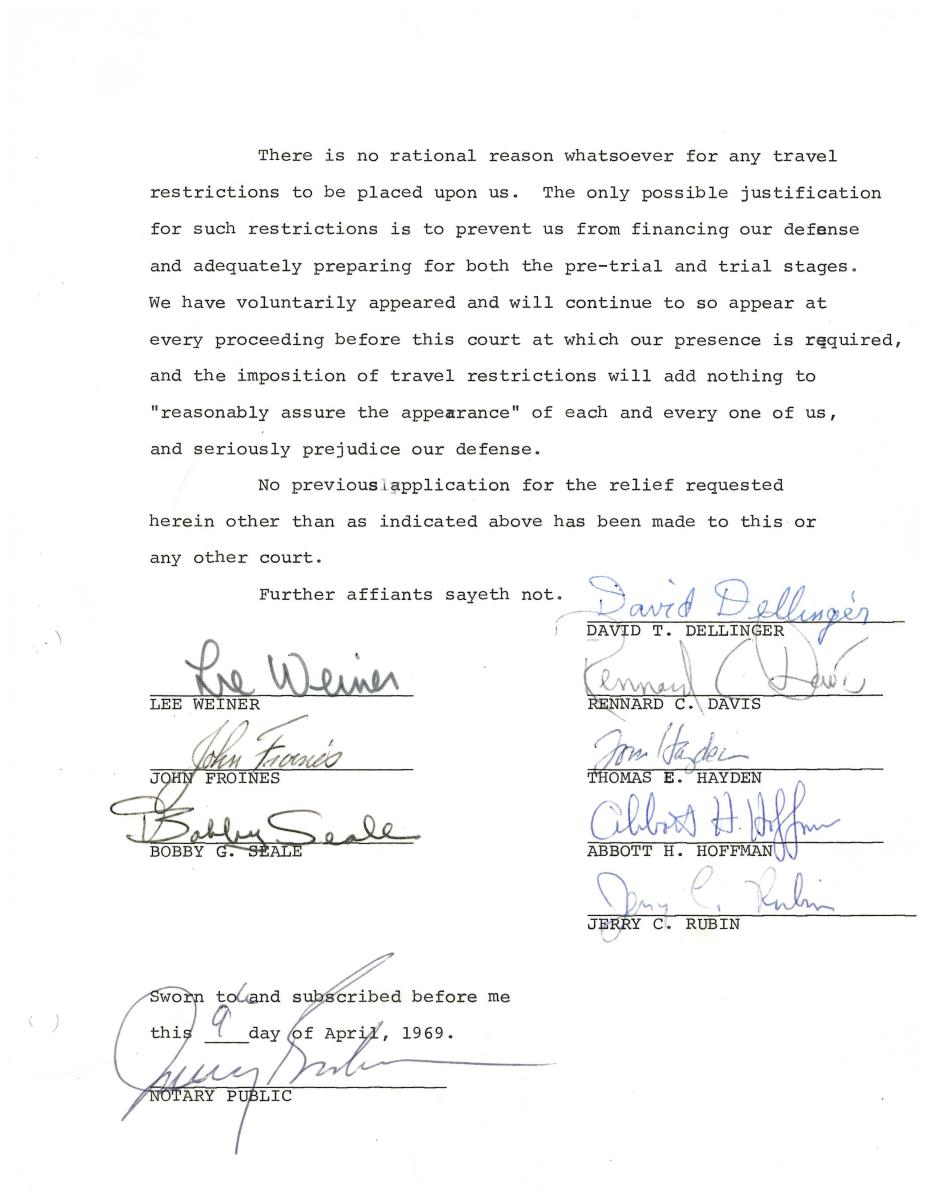
Chicago 8 Statement
This is a statement signed by all eight of the original defendants in Criminal Case File 69CR180, United States v. David T. Dellinger, Rennard C. Davis, Thomas E. Hayden, Abbott H. Hoffman, Jerry C. Rubin, Lee Weiner, John R. Froines, and Bobby Seale. In this case, defendants Dellinger, Davis, Hayden, Hoffman, Rubin, Weiner, Froines, and Seale were accused of inciting riots during the Democratic National Convention of 1968. On March 20, 1969, the grand jury returned indictments on the eight individuals on charges of conspiracy to travel in interstate commerce with the intent to incite a riot, in violation of the Anti-Riot Act. Bobby Seale, a leader in the Black Panthers, was later separated from the case by Judge Julius Hoffman and was sentenced to four years in prison for contempt of court and declared a mistrial in the prosecution of Seale. Six of the remaining defendants were indicted on individual charges of traveling in interstate commerce with the intent to incite a riot, in violation of the Anti-Riot Act.
On November 21, 1972, all of the criminal convictions were reversed by the panel of the U.S. Court of Appeals for the Seventh Circuit. The majority opinion of the court unanimously found several errors by Judge Hoffman and censured Judge Hoffman and the prosecutors for their conduct during the trial.
View and download parts of the case The United States of America v. Dellinger, et al. on the National Archives Catalog. This record is one example of many held in District Court Case Files at the National Archives at Chicago, IL. You can explore more of our holdings by visiting our online Catalog or by visiting our research room in person. These records are located within Record Group 21: District Courts of the United States, Series: Criminal Case Files, 1872–2001. Many of the records in this collection have yet to be digitized. We encourage researchers to visit us onsite or contact us remotely to explore these records and learn more about the archival collections held in the National Archives at Chicago.
